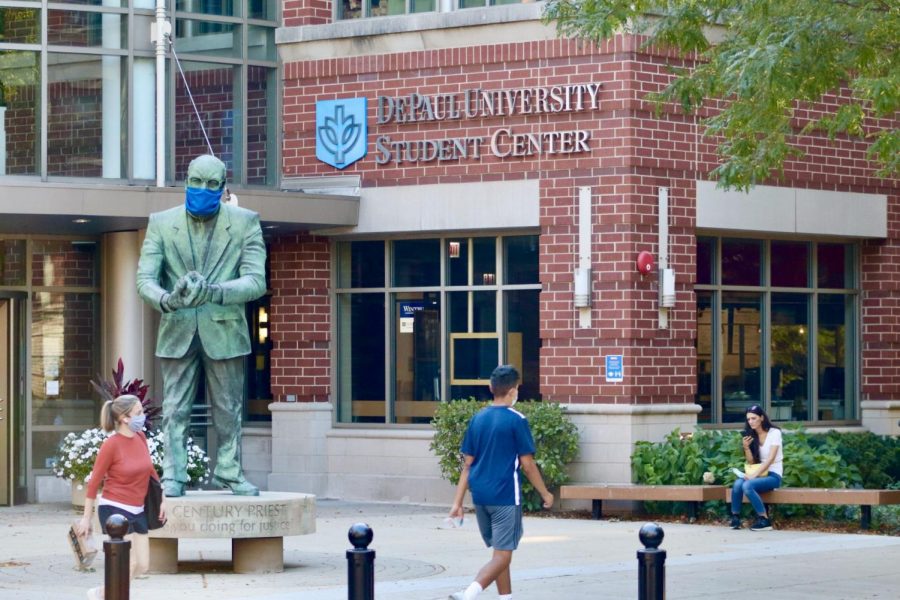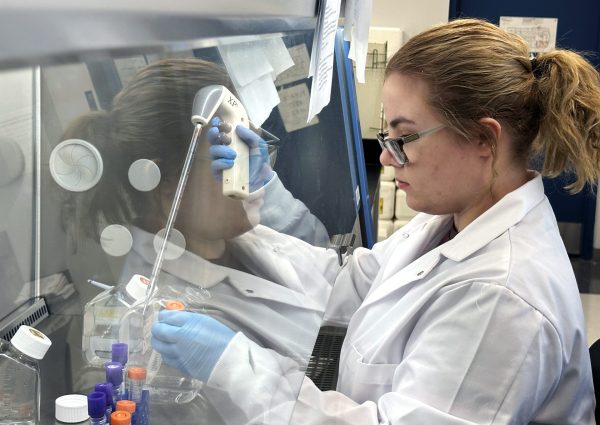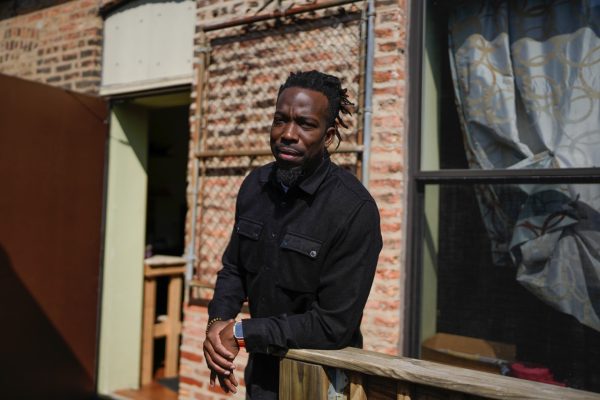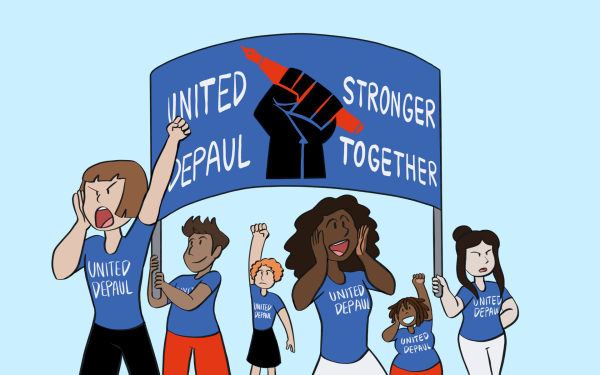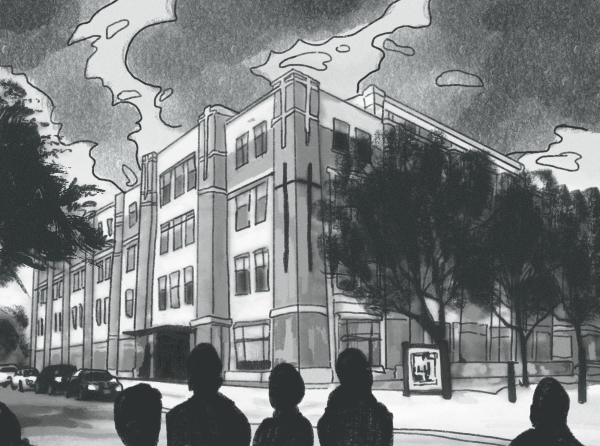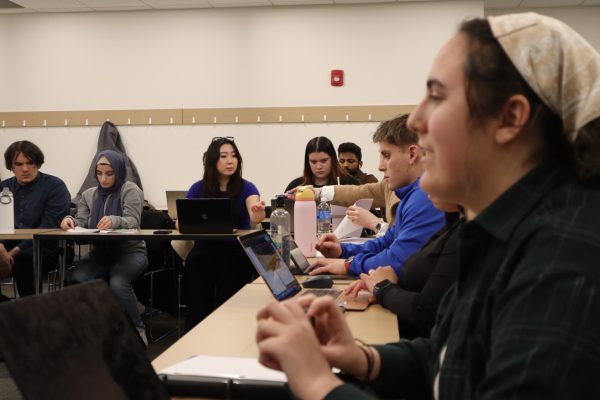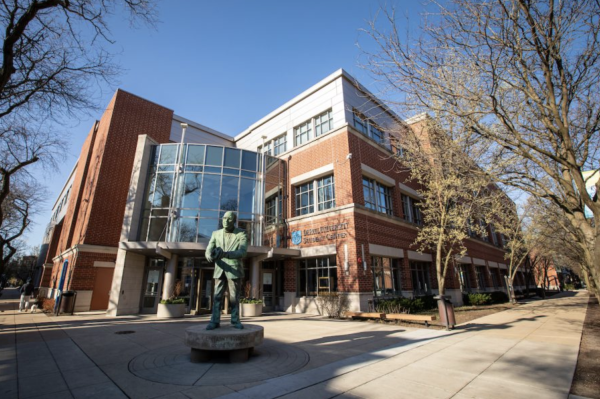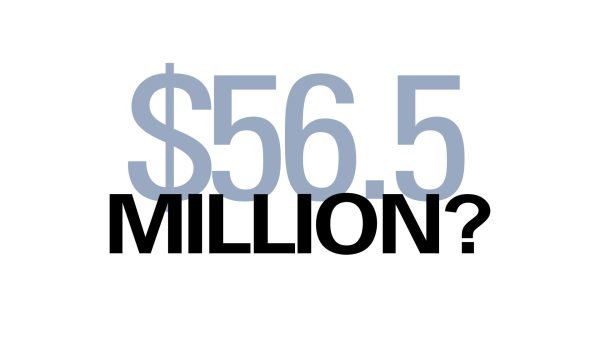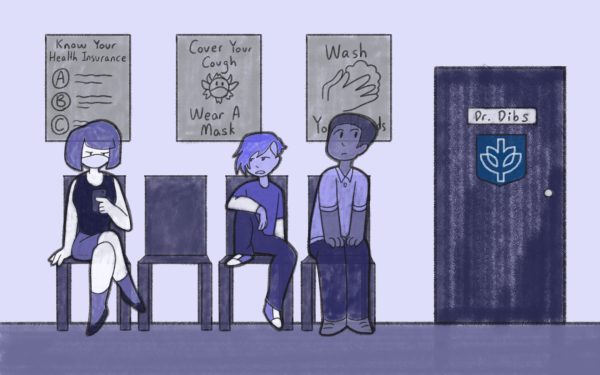College of Communication Diversity Advisor addresses DEI action plan criticisms
Students walk around a mostly empty campus during the pandemic.
The College of Communication’s Diversity, Equity and Inclusion (DEI) task force conducted a yearlong research report in 2018-2019 interviewing students, faculty and staff to identify areas for potential improvement. Based on the project’s findings, the college developed an action plan in September 2020 to address practices and policies throughout the college. Despite the college’s stated commitment to dismantling racism, numerous community members have condemned DePaul’s communication department for discrimination.
The College of Communication’s current action plan includes short and long-term goals that will be modified as needed, according to the College of Communication website. The plan aims to meet the needs of communication members by offering a supportive, diverse and inclusive environment.
Communication professor Dustin Goltz took over as the college’s diversity advocate this past fall. Goltz leads the DEI advisory group of faculty, staff and students from the College of Communication.
“As Diversity Advocate, I am also connected to college advocates from around the university, although our focus is primarily at the college level,” Goltz said.
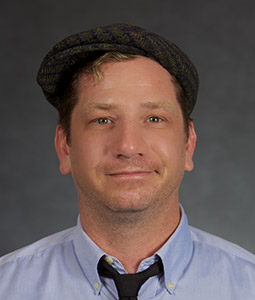
Professor Maria DeMoya preceded Goltz as the College of Communication diversity advocate. DeMoya is currently DePaul’s chair of public relations and advertising, the College of Communication’s representative for the Faculty Council on DEI and a member of the President’s Diversity Council.
DeMoya conducted the college wide study on areas for improvement regarding DEI initiatives. She interviewed community members within the college and conducted focus groups consisting of students, faculty and administration. The studies’ findings informed the college’s current action plan.
“So this is definitely the beginning,” DeMoya said. “This is not like the cure all solution, not at all. And yes, it will be revised.”
The action plan has four primary goals, the first being to address structural racism, power, privilege and oppression within the College of Communication.
Some of the initiatives include hosting ongoing anti-racist conversations with faculty, students and administrators. An anti-racist reading group is available for faculty and staff, and at least twice per quarter, there will be listening sessions available for students in the college. These programs were initiated last fall quarter and will be ongoing.
The second main point of the DEI action plan consists of strengthening existing diversity, equity and inclusion initiatives.
The College of Communication will continue to hold diversity training for search committees, and starting this spring, the college will also provide diversity training for leadership positions including those who conduct reviews.
Training and funding is also intended to expand the diversity and representation offered within course readings and materials. An ongoing assessment will identify course progress and areas that need improvement, with a focus on decolonizing course content throughout the college.
In order to foster more engagement as well as increase transparency on the progress of the college’s DEI initiatives, plans to implement a centralized webspace and social media are underway. The webspace will also operate as a student feedback system.
The third initiative under the action plan includes scrutinizing the practices, procedures and policies within the college that perpetuate racism in order to create new systems that promote diversity, equity and inclusion.
Starting last fall, mandatory quarterly meetings for faculty and staff were implemented to continually reaffirm the college’s DEI commitments.
The plan also institutes a policy where all faculty up for formal review will meet with the college diversity advocate one on one to identify any DEI-related concerns or questions. DePaul professor’s Lisa Calvente and Sydney Dillard, two Black professors within the college, both experienced formal reviews prior to filing discrimination lawsuits, which they described as irregular and unfair.
The final main component of the action plan includes continuously supporting and providing opportunities for an inclusive community within the college. Such opportunities include hiring a student DEI fellow to assist in the college’s ongoing anti-racist work, among other initatives.
“One thing we are continually learning is that our students, staff, faculty and administrators bring unique perspectives and experiences to discussions of DE&I,” Goltz said. “Our goal is to foster a working space where each of these perspectives can better shape and extend the scope and reach of our action plan.”
On April 12, communication scholars from across the country and world signed a petition criticizing DePaul’s College of Communication for fostering a “toxic environment that threatens the health, wellbeing, livelihoods and lives of scholars of color.”
The petition was sent to the school’s communication deans and upper administration. Despite the college’s current action plan, the petition calls on DePaul’s communication department to take further steps to ensure an equitable work environment.
“Racism is a description of the failure of individuals and institutions to dismantle ideologies, systems, and structures – and by that definition DePaul’s College of Communication is racist,” the petition reads. “In taking these anti-racist actions, DePaul will not only improve the institutional environment for Black and Brown faculty, but also for white faculty who will benefit from the increased transparency and equity.”
The petition includes three main requests, including acknowledging and addressing the racist structures that prevent faculty of color from advancing, as well as providing support for BIPOC staff. The petition also calls for the resignation of both acting Communication Dean Alexandra Murphy and interim Provost Salma Ghanem, both of whom conducted Calvente and Dillard’s formal reviews.
DePaul’s Black affinity groups also released a university wide letter after the petition, calling on DePaul administration to follow up their stated anti-racist commitments with action. The letter also references Calvente and Dillard’s lawsuits and offers solutions to combat the university’s questionable racial climate, according to the letter.
“Faculty, staff, and students uniformly discussed a gap between DePaul’s stated DEI commitment and their actual record of accomplishment,” the letter reads. “They noted that the stated commitment was for marketing purposes and was in word only, and that DePaul did not do a good job of creating DEI metrics and goals to hold themselves accountable and measure progress.”
The letter from DePaul’s Black community includes similar requests regarding dismantling structural inequities and fostering greater opportunities for diverse students, faculty and staff college wide. The letter cites the disproportionately low percentage of Black students and faculty across campus.
According to DePaul’s Institutional Research and Market Analytics, around 16 percent of all instructional faculty are members from minority groups. Black faculty and staff occupy even fewer positions across campus.
2020CDS_I by DePaulia on Scribd
Black staff members make up 9 percent of ‘Executive, Administrative, and Managerial’ and ‘Other Professional’ categories, while white staff occupy 64 percent of the same categories, according to the letter.
Both the petition and letter call on DePaul to do more regarding their DEI initiatives, most notably making substantial changes to DEI leadership and implementing a retention plan for faculty of color among other requests.
“Looking across the breadth of initiatives we have been able to institute, I do believe we have made some significant steps, and I encourage people to look at what we are doing,” Goltz said. “I do need to mark that no person in the college has been more committed and influential in supporting our initiatives than our acting dean.”
The petition requested an official response on behalf of the university by April 26. As of Friday May 7, there has been no indication of a public response.
The letter from DePaul’s Black community also requested a meeting with President A. Gabriel Esteban and Gerald Beeson, chair of DePaul’s Board of Trustees, before May 12. On May 2, Esteban released a response, but has not stated if he will meet with community members as requested.
“I will discuss your concerns with my leadership team and the board leadership as part of our continuing strategic conversations on these topics,” Esteban said.
Both the former and current College of Communication diversity advocate, DeMoya and Goltz, told The DePaulia they agree that there is more work to be done to ensure DePaul is more equitable.
“I think as a faculty member of color, if you feel that you are being mistreated, or that you are being discriminated [against], having the support of other faculty, even outside your college, can be very comforting and powerful,” DeMoya said. “I think there’s always an opportunity for further reflection and for further learning.”
While DeMoya empathizes with the petition’s sentiments, she echoed Goltz’s support for acting dean Murphy.
“I definitely would not advocate for losing our dean since she’s been super supportive, or the provost, but I understand why they make demands that big,” she said. “I think they want to communicate how serious of a problem they think this is.”
DeMoya and Goltz agree that the college’s DEI action plan is not a solution to the ongoing issues regarding racism and discrimination within the communication department; rather, it is a starting point for progress.
“I would not suggest the current plan is sufficient — there is much work we need to do,” Goltz said. “The college action plan is an ongoing process and project, not a fixed destination. The action plan invites, and is strengthened by, continual reflection, dialogue, accountability, diversity of perspectives and room for change. It details our current initiatives as well as making more visible our ongoing work in interrogating our systems, practices and processes.”


